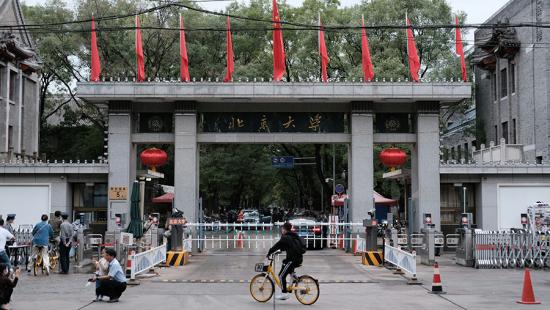Daniel Leithinger: Designing Future Shape-Changing Computer Interfaces

image / Daniel Leithinger
Design Tech Public Lecture Series
Abstract
Imagine how computer interfaces would vastly differ from today’s smartphones and laptops if they were to fully embrace the senses and expressive abilities of the human body. Guided by the vision of sensory-rich whole-body interaction, I propose a series of computer interfaces that render digital information through dynamic physical shapes that we can touch and deform with our hands. Grounded in a background of kinetic art and embodied cognition, such interfaces could transform how we work, learn, and play together in the future. I argue that to bring these ideas out of the lab and into the real world, technical development needs to be driven by interface design. Therefore, it is crucial to develop new tools and methods for designers, artists, and stakeholders to collaboratively ideate, test, and iterate future interface prototypes.
Biography
Daniel Leithinger is a Design Tech Innovation Fellow at Cornell University. His research and teaching in Human Computer Interaction focus on physical shape-changing interfaces and spaces. Guided by a vision of computing in which humans engage with computers through their whole body, Leithinger and his students invent robotic interface technologies, study how designers engage with them, and prototype novel applications. As an Assistant Professor of Computer Science at the University of Colorado at Boulder from 2018-2023, he led the THING Lab at the ATLAS Institute. In 2015, he cofounded Lumii (now Fathom Optics) to develop glasses-free 3D display technologies. Daniel received his Ph.D. at the MIT Media Lab in 2015 and his B.Sc. and M.Sc. at the Upper Austria University of Applied Sciences in Hagenberg, Austria, in 2005 and 2007.







